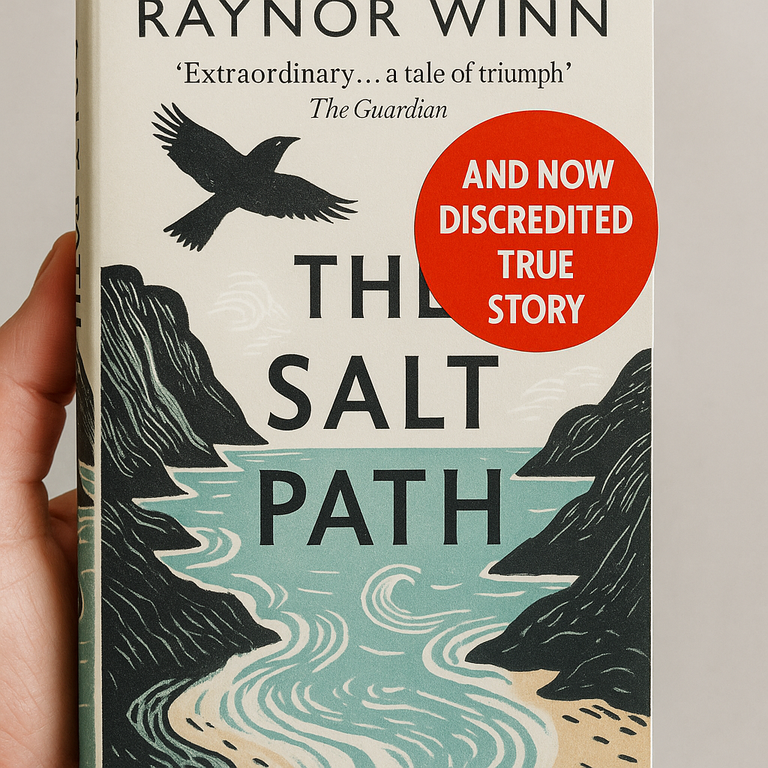The Salt Path: A little Economical with the Truth...?
I haven't personally read it, but I've seen a fair few friends and colleagues having a go at 'The Salt Path', Raynor Winn's 2018 'true lif'e story of how she and her husband overcame extreme diveristy by going for a walk.
And with over 2 million copies sold this tale is clearly hitting a chord with A LOT of people.
I've been tempted to give this a go myself, but now I am not too sure as some recent revelations suggest that the account is not as factual as the couple have lead their readers to believe.

The narrative
The narrative is certainly gripping: Winn and her husband experience a 'perfect storm' of life-changing medical news, and an investment gone wrong, and lose everything: their house and their health, and so, having no other choice, they set out on a 630-mile hike along the South West Coast Path, and see where life takes them...
The not so romantic reality...?
The Observer published an expose on the real history of the tale a few weeks back week. According to this, the Walkers (Sally and Tim Walker, the actual names of Raynor's husband and herself) were not mere victims of bad fortune. Instead, their farmhouse was stolen not because the investment collapsed, but owing to a case of fraud. Sally, who was employed as a bookkeeper, allegedly pilfered £64,000. The property was utilized as collateral by a relation to pay back the victim — but later defaulted.
Even the medical claims are being questioned. The memoir centres around Tim’s diagnosis of corticobasal degeneration — a condition usually fatal within a decade. Yet 12 years on, he remains in good health, prompting scepticism from specialists interviewed by The Observer.
Walker has responded to the above claims saying the Observer article is 'highly misleading', but so far hasn't managed to produce a complete refutation, which suggests that this particular 'true story' maybe isn't so truthful!
Blurred lines....
True Stories are never going to be absolutely objective, but readers have the right to assume honesty where a book is sold as non-fiction. Especially one that is aided by deeply emotional stuff such as disease, tragedy, and survival.
Personally I won't be reading this book, I simply don't trust its authors.... if they could provide hard evidence of the validity of the book's content I'd be more forgiving, but they seem to have gone mostly silent which in itself speaks volumes!
This piece in The Guardian is worth a read on other books billed as true stories which have turned out to be entirely or partially fabricated...
Posted Using INLEO
I've heard about this, but not read the book and probably wouldn't have anyway. I have a stack of books to work through. If people manipulate the truth they are likely to get found out. I think the book trade operates largely on hype these days, but then it always has to some extent. You just have 'influencers' and others pushing the books now.